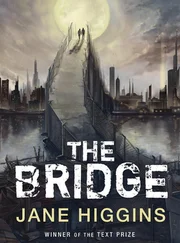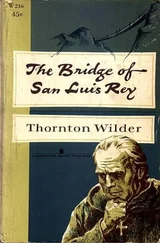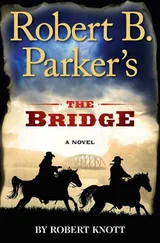‘About Jo?’
‘Ash was happy-go-lucky, positive.’ Kevin paused and put his cup down. ‘Not much worried Ash. But Jo got anxious. I understand; I do too. Ash would get pissed off with her. She’d say Jo was needy, annoying. She’d say stuff but then send Jo a text to tell her what we were doing — like, a hundred texts a day, as if nothing was real until she had told Jo. I don’t know, I never understood. Girls have different kinds of friendships to guys.’
‘Have you talked to Jo since the accident?’
‘No.’
‘You haven’t tried to see her or talk to her?’
‘I sent her a text message after the accident. I wanted to talk about Ash. She didn’t reply… But I saw her. Last week I rode my bike to the bridge. It was an insane thing to do, it took me an hour and a half, and I was so stuffed I had to take the train back. But driving there didn’t seem right, and I wanted to go there. It’s weird, but I thought I could talk to Ash there. When Jo saw me, she turned around and raced off into the reserve, couldn’t get away fast enough. So I figure she’s not ready to talk. It sorta sucks, because it’d help to talk to Jo about Ash.’
Sarah sighed. When she thought about the impact that Kevin’s statement, if he were prepared to make one on Jo’s behalf, might have on the sentencing judge — if any — she wasn’t sure it was worth putting him through the pain of having to write one.
There were now two groups of men on the golf course, and their voices wafted across to the garden. ‘So you didn’t get to talk to Jo at all, that day?’
‘No. I didn’t follow her. I stayed awhile. I read the names of the men who died when the bridge collapsed. They’re engraved on a plaque down there. There are lots of workmen on the bridge at the moment, doing some major reconstruction. How do you reckon they feel, working on the bridge knowing all those other blokes died?’
‘It was a long time ago,’ Sarah said. ‘Most of the guys working on the bridge now probably don’t even know about the collapse.’
‘Ash’s grandfather was working on the bridge when it collapsed. Did you know that?’ Sarah shook her head. ‘He was there when it collapsed and he lost mates… the weekend before she died Ash told me about it, and about how her grandfather won’t drive across the bridge. She’d only found out recently, when she asked him if they could go over the bridge for a driving lesson and he refused. We talked about how a tragedy might change people, how it might be worse for the ones who survive. It’s so weird that we were talking about it and then for Ash to… for the accident to happen there.’ He paused. ‘It’s been two months since her funeral. I haven’t been to work or out with friends. I can’t think about anything else. I can’t concentrate on anything else. How did the men who survived move on? How did they go on living their lives?’
Kevin said he wasn’t a talker. He was the shy and nerdy type, the kind who preferred to read or play computer games. But he couldn’t stop talking. Sarah understood that impulse. After Ada died, she wanted to tell everyone about her. She said Ada’s name over and over again. She inched her into every conversation. She wanted to tell everyone she talked to that this wonderful woman was gone. She wanted others to experience the loss — everyone she knew, everyone she met, especially all those people who hadn’t known Ada and now wouldn’t have a chance to meet her. She’d been zealous. Driven by anger and grief, but also by guilt. The truth was, she’d known Ada was depressed, that she was descending into a dark and narrow place, that she was lost and alone; she knew Ada was heading for a fall, and she’d done nothing.
The Portarlington bus made its way through the centre of Geelong, past the hospital, and onto the highway. Jo loved driving in the country. She and Ash had talked about taking road trips along the coast. But Jo would never drive again. Never.
The other passengers were locals. The driver greeted each by name and asked after kids and elderly parents. He talked about the last Cats game and what they needed to do to make sure they were in the finals next season. He told them he found his ten-year-old son and a friend playing with matches in the field at the back of the house, about the dry grass, about getting angry and yelling at them and remembering his childhood attraction to fire and how he’d almost burnt down his father’s shed. Some of the passengers laughed.
One of the older women said, ‘Sounds like he’s taken after you.’
‘Problem is, fires catch too easy,’ said a woman in a nurse’s uniform.
Jo crouched down in her seat at the back. The sky was dark grey, but inside the bus it was hot. She took her jacket off and stared out the window. Once they left Geelong, the highway was sandwiched between farmland. There were several wineries along the way, and even from the bus she could see the vines were heavy with fruit.
Earlier that morning she’d woken up with Ash’s voice in her head. No one, not even your mother , loves you. And a beam of morning light coming in through the gap in the curtains, hitting the wall and exposing the faint outline of the jungle mural that layers of paint hadn’t been able to cover.
‘What is underneath the paint?’ she’d asked Grandpa Tom when she first saw the outline, the hints of green and yellow.
‘A mural painted by your mother and your uncle. I’ve painted over it half a dozen times, but it keeps coming back.’
‘What kind of mural?’
‘There were trees and monkeys, and I think a giraffe — your Uncle John was obsessed with giraffes. Your mother, she must have been about five at the time, and John, he would’ve been seven. They were right little rascals.’
‘Did it have birds in the trees?’
‘There were birds sitting in the branches, and rabbits running around the base.’
‘Did it have snakes?’ Jo had recently seen her first snake on a walk along Stony Creek. Mandy had spotted it. ‘An eastern garter snake,’ she had whispered. The snake was striped, grey and yellow, and coiled so that its head and tail were almost touching.
‘No snakes that I can remember,’ Grandpa Tom said, shaking his head.
‘Were you angry?’
‘I laughed, but your grandmother almost blew a fuse, and I was in the biggest trouble of all for laughing.’
That morning, staring at the wall, with Grandpa Tom’s voice in her head, she’d been overwhelmed with despair. Wherever he and Pop Jack were, they were ashamed of her now.
When she heard Mandy leave for work, she had dressed and packed a few clothes. She turned her phone on for the first time in weeks and put it on to charge. Almost immediately, insistent beeping announced new messages: from Laura, from Ruby at the café, from Mrs Hunt, from her father, from Ash… from Ash’s phone…
You are a murderer.
You fucking killed Ashleigh. You stupid bitch, you should be dead.
Her stomach churned. She felt her heart beating faster. Someone in Ash’s family wanted her dead. Maybe everyone wanted her dead. She read the messages again, and a third time. It was true, she was a murderer. She understood, she agreed. She should be dead. But she wasn’t. She turned the phone off, pulled it off the charge, and threw it onto the bed.
She took her bag and left the house without turning back.
At the station, the next train was headed for Geelong, due in six minutes. That was where she’d go, then. On the train she spent the whole hour staring out the window into the backyards of the houses lining the railway track as they sped through Yarraville and Newport, through the flat open fields on either side of Werribee, through Little River and Lara, until they finally reached the outskirts of Geelong. She tried not to think, but her head was swarming with the voices.
Читать дальше












